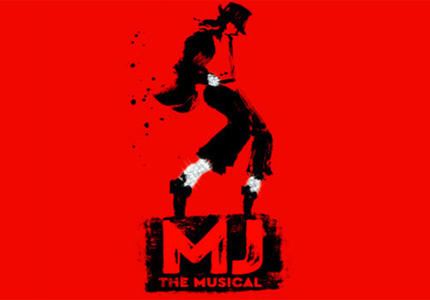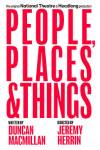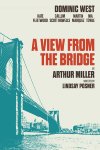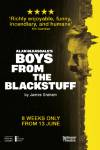The Perks and Problems of Theatre Previews
The news that the brand new West End musical Charlie and the Chocolate Factory has cancelled its first two previews may be disappointing for audience members, but can surely come as not much of a surprise for those within the industry, especially those who have been involved with shows on a similar scale. With production costs mounting and the sheer scale of the venue itself and its technical specifications, opening any new project is always met with difficulties. Producers of the show have been careful to mention the technical issues which have forced the slight change of plan rather than let the online rumours take its toll that any of the cast or the show itself is not up to scratch. With a production that has been so long in the making this is obviously an unlikely situation. We can only hope from Mark Thompson’s elaborate set designs that this means some fantastic visual treats await us when the curtain is finally raised on May 22nd.
Shutting the Critical Door
The process of previews themselves is an interesting one, and one that is rarely understood by those outside of the industry. What was once considered a luxury of new work is now a regular occurrence for shows in the West End. For an audience previews are a way to see a piece before the critical onslaught which comes after the official press or opening night. Critical opinion is embargoed until after a certain date, and although Producers are now adopting the more American method of inviting critics to a selection of shows rather than just one, formal judgement has to be reserved until the show is officially determined as ‘open’.
Many audiences fail to see the difference between seeing a show in previews and after press night, and the decision as to which is better is a key area of debate. Some audiences will go out of their way to see a preview, often to provide the first word for their little slice of online journalism in this digital world where everyone can be a critic. This race to damn or praise a show via message boards and blogs is one that continues to grow with each new show that opens, making the process of previews a sometimes dangerous entity. Some audiences simply enjoy seeing a preview performance as they can appreciate the piece away from the critical opinion of ‘professional critics’, which by the next morning are branded on posters, tube carriages, newspapers and websites in a way you can’t escape even if you wanted to. Being told a show is a ‘sensation’ before you have seen it yourself can often shroud your own enjoyment. This certainly happened to me with ‘Matilda the Musical’, as my expectations were raised so highly before I stepped foot in the door, it ended up not living up to my inflated idea of how amazing I should have found it. Had I seen the show in previews, perhaps I would have watched it through different eyes, and the end result being more positive? Instead I felt let down, when in fact I had been blown away by the staging and performances, but I felt somewhat cheated out of the experience. The same effect can happen the other way round, as more often than not with bad reviews audiences go into a show with the mindset that it is awful. As much as word of mouth and some ironic marketing from ‘Viva Forever’ attempted to squash the critical mauling it received, it can’t have helped audiences going into it already expecting it to be terrible.
Counting the Cost
One main reason audiences may choose to attend previews simply comes down to price. All shows offer discounts over the preview period, with many being significantly cheaper than after opening night. In many cases this makes the different between sitting in a slightly restricted seat and paying that extra bit more to have a clearer view of the stage, without feeling like you are paying through the nose. The upcoming West End premiere of The Commitments the Musical at the Palace Theatre has set the bar for preview prices, offering tickets in the first three weeks for only £5. Granted these are in the Balcony section of this notoriously tricky venue, but none the less audiences are able to see a professional West End musical for just slightly more than you would pay for an interval ice cream at an ATG venue across the road (a staggering £4.50). From a marketing sense this method should pay for itself, as it is going to be a show that relies on good word of mouth to generate bums on seats. Any producer of commercial or fringe theatre knows that packing the audiences in early helps sell your later weeks (presuming the show itself is good), and it is important that audiences not only go away singing the show’s praises, but also feel a small part of the creative process.
The question should then be asked, who exactly is the preview for? Anyone within the industry will tell you that they are entirely for the production team, and in the early stages audiences are seen as an aid to judging what works and what doesn’t. This is often two fold – the first being for the actors and directors to work out moments onstage that are not working in order to fix them, as well as the tech team to work out and rehearse often complicated technical issues coordinating lights, sound, an orchestra, set pieces and so forth. Obviously the more technically demanding the show, the harder this task is. Small scale plays with only a couple of actors don’t often preview for as long, especially if they have played somewhere else ahead of London, which is quite often the case.
How often are these opinions referenced and collated? As someone who attends previews on organised ‘trade evenings’, my opinion, or those of my colleagues, is rarely requested. Of course, there is no reason as to why our opinions should be brought into discussion, but in many cases judging an audience’s reactions and talking to them one-on-one can be a real help. What may seem clear to those close to the production may be opaque to those approaching it for the first time. Narrative may be unclear, characters not portrayed the way they are intended and genuine loss of concentration are all fixable problems that previews can help iron out.
Ironing Out the Problems
Where previews are most important is in the case of new writing. New musicals, and even new plays rely on previews as a test run, and work is continually done throughout the process from every member of the production team to act on any problems and issues that might arise. Those (sadly few) people who have followed NBC’s backstage soap opera ‘Smash’ have had some glimpse into how previews and out-of-town tryouts affect a show, and it is literally possible in this time to recast, re costume and re-hire members of the production team, if those at the top don’t deem them to be working. The current West End transfer of the Menier Chocolate Factory’s brilliant Merrily We Roll Along is an excellent case in point. What is now considered a 5 star musical had a much bumpier beginning, playing for only 16 performances at Broadway’s Alvin Theatre in 1981. In his book ‘Finishing the Hat’, the composer of the show Stephen Sondheim talks about the fundamental changes the show went through from dress rehearsal to opening night, which included finding a new choreographer as well as leading man. As Director Hal Prince saw the narrative wasn’t getting across to audiences (who were leaving during the interval), he dramatically changed the costumes after the first dress rehearsal to simple t-shirts detailing the relationship each character had to Frank, to help the audience better understand the shifts in time and the backwards narrative.
Every production has its own stories of previews and how they went on to shape the final production. The most prolific in recent years has to be the Julie Taymor led Spiderman: Turn Off the Dark which broke records for the longest preview period in history. Beginning shows at Broadway’s Foxwoods Theatre on November 28, 2010, the official opening night didn’t arrive until June 14 of the next year, after 182 preview performances. In that time many cast members changed, some were injured and director Julie Taymor was dramatically fired from the production which she later went on to defend in court. The show changed almost every aspect of the production throughout this time, with the score (by Bono and The Edge) undergoing major re-writes as well as changes to the book and many of the special effects and flying sequences. The delays in production were chronicled regularly in the New York and international press, resulting in critics taking matters into their own hands and breaking the usual conventions, reviewing the show before press night. Many felt that having such a lengthy preview period was ‘unfair’ on the theatre community, and with a show that has so many potential problems, it was going to be far too long before it became ‘frozen’.
A Brief History
Despite now being considered the norm, preview periods were once the exception to the rule. Out of town tryouts in towns such as New Haven, Philadelphia and Boston helped give Producers what they needed before making the crossover in New York. In 1952 “Wish You Were Here” was the first musical to begin the extended trend for previews. As the sets (which featured an onstage swimming pool) were too big to transport, the show ran for three and a half weeks before officially opening, with tickets sold to charity benefits rather than the general public.
Later that year the revue show “Two’s Company” demanded two weeks of previews before critics could attend, in addition to an out-of-town tryout, in order for the new director to make changes to it. They were later cancelled as the lead, Bette Davis, became ill. In the 1960s Director Hal Prince was one of the first Producers to realise that the old system of opening nights was dead, claiming it was ‘inhumane’ on the actors, and instead invited them to any of the last three preview performances, a practice that begin in 1966 with Cabaret and has since become commonplace. This was also the first show that allowed audience to buy reduced price preview tickets, with the belief that audiences were effectively ‘gambling’ on a show’s quality before reviews were published, and shouldn’t have to pay full price. This system continued throughout the 60s, and performances were clearly labelled as ‘previews’ and offered at discounted rates.
Throughout the 1970s preview periods began to grow and grow, as out-of-town tryouts began to get less common thanks to increasing costs. Producers also ended up getting rid of discount pricing in order to meet the growing budgets larger musicals were requiring. As the roaring 1980s arrived and the demand for tickets remained high thanks to British imports and the rise of the ‘mega-musical’, the labeling of preview periods became somewhat lax, and audiences were less aware of what they were paying full price for. With shows already arriving with a seal of approval from London, and vice-versa, the preview period became less important, and instead audiences were clamouring to get to see the show before anyone else.
Looking at the history of previews on both Broadway and the West End, in general terms those shows that have extended previews or repeatedly extend, fair worse by critics and audiences alike. Whilst Spiderman: Turn Off the Dark may be a modern exception, thanks to the publicity surrounding the show due to its drama it still manages to play to an average of 80% capacity and gross over $1 million each week. Whilst Charlie and the Chocolate Factory is certainly not on that scale, the cancellation of the previews made the national press and exploded online, doing perhaps a more effective job of reminding the public that it was indeed opening in the first place. With a preview period of almost 5 weeks, we shall wait to see how this effects the show’s momentum, and the changes made to the production before its opening night on June 25, 2013.













